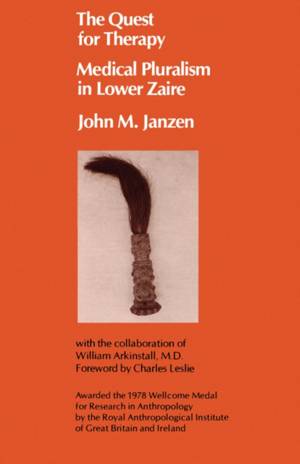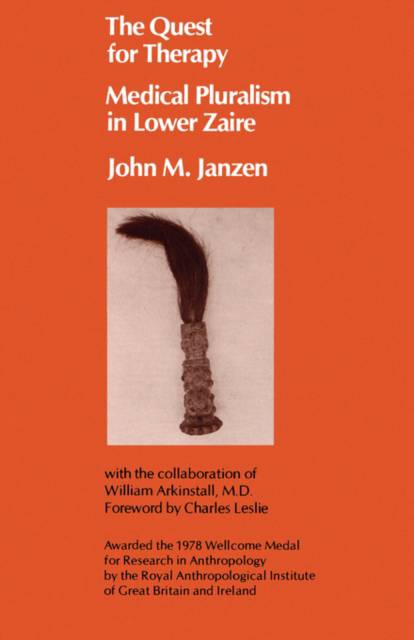
Bedankt voor het vertrouwen het afgelopen jaar! Om jou te bedanken bieden we GRATIS verzending (in België) aan op alles gedurende de hele maand januari.
- Afhalen na 1 uur in een winkel met voorraad
- In januari gratis thuislevering in België
- Ruim aanbod met 7 miljoen producten
Bedankt voor het vertrouwen het afgelopen jaar! Om jou te bedanken bieden we GRATIS verzending (in België) aan op alles gedurende de hele maand januari.
- Afhalen na 1 uur in een winkel met voorraad
- In januari gratis thuislevering in België
- Ruim aanbod met 7 miljoen producten
Zoeken
Omschrijving
In this book, Dr. John M. Janzen describes patterns of healing among the BaKongo of Lower Zaire in Africa, who, like many peoples elsewhere, utilize cosmopolitan medicine alongside traditional healing practices. What criteria, he asks, determine the choice of the alternative therapies? And what is their institutional interrelationship?
In seeking answers, he analyzes case histories and cultural contexts to explore what social transactions, decisionmaking, illness and therapy classifications, and resource allocations are used in the choice of therapy by the ill, their kinfolk, friends, asociates, and specialized practitioners.
From the Preface:
This book presents an "on the ground" ethnographic account of how medical clients of one region of Lower Zaire diagnose illness, select therapies, and evaluate treatments, a process we call "therapy management." The book is intended to clarify a phenomenon of which central African clients have long been cognizant, namely, that medical systems are used in combination. Our study is aimed primarily at readers interested in the practical issues of medical decision-making in an African country, the cultural content of symptoms, and the dynamics of medical pluralism, that is, the existence in a single society of differently designed and conceived medical systems.
In seeking answers, he analyzes case histories and cultural contexts to explore what social transactions, decisionmaking, illness and therapy classifications, and resource allocations are used in the choice of therapy by the ill, their kinfolk, friends, asociates, and specialized practitioners.
From the Preface:
This book presents an "on the ground" ethnographic account of how medical clients of one region of Lower Zaire diagnose illness, select therapies, and evaluate treatments, a process we call "therapy management." The book is intended to clarify a phenomenon of which central African clients have long been cognizant, namely, that medical systems are used in combination. Our study is aimed primarily at readers interested in the practical issues of medical decision-making in an African country, the cultural content of symptoms, and the dynamics of medical pluralism, that is, the existence in a single society of differently designed and conceived medical systems.
Specificaties
Betrokkenen
- Auteur(s):
- Uitgeverij:
Inhoud
- Aantal bladzijden:
- 308
- Taal:
- Engels
- Reeks:
- Reeksnummer:
- nr. 1
Eigenschappen
- Productcode (EAN):
- 9780520046337
- Verschijningsdatum:
- 22/06/1982
- Uitvoering:
- Paperback
- Formaat:
- Trade paperback (VS)
- Afmetingen:
- 140 mm x 208 mm
- Gewicht:
- 349 g

Alleen bij Standaard Boekhandel
+ 115 punten op je klantenkaart van Standaard Boekhandel
Beoordelingen
We publiceren alleen reviews die voldoen aan de voorwaarden voor reviews. Bekijk onze voorwaarden voor reviews.









